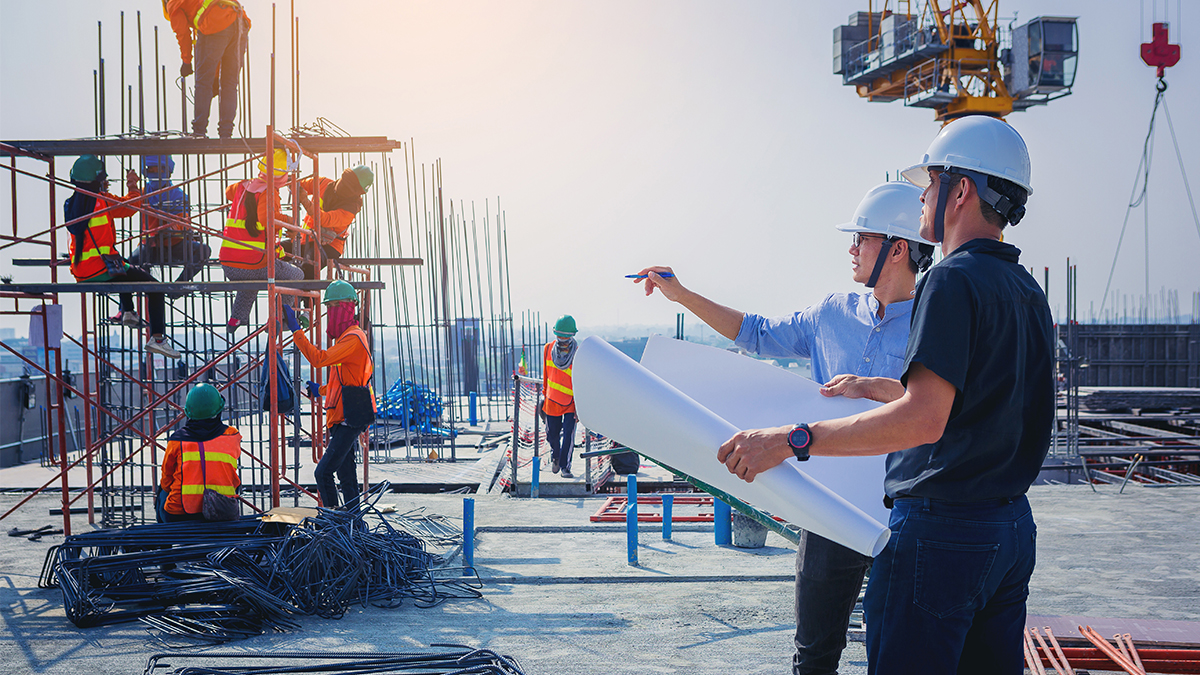The construction industry in the UK is undergoing a profound transformation driven by technological advancements, sustainability imperatives, regulatory changes, and shifting societal demands. As we look ahead, it’s essential for construction professionals to stay informed about the latest trends shaping the future of the industry. In this blog post, we’ll explore some of the top trends that are influencing the trajectory of construction in the UK and discuss how stakeholders can adapt to capitalise on emerging opportunities.
Sustainable construction practices
Sustainability has become a central focus for the construction sector in the UK, driven by environmental concerns and regulatory pressures. Green building practices, such as energy-efficient design, use of sustainable materials, and waste reduction measures, are increasingly being adopted to minimise the environmental impact of construction projects. Additionally, initiatives like the UK Green Building Council’s Net Zero Carbon Buildings Framework are setting ambitious targets for achieving carbon neutrality in the built environment, further propelling the adoption of sustainable construction practices.
Digitalisation and Building Information Modelling (BIM)
Digitalisation is revolutionizing the way construction projects are planned, designed, and executed. Building Information Modelling (BIM) has emerged as a powerful tool for improving collaboration, enhancing project visualization, and optimizing building performance. In the UK, the government’s mandate for BIM Level 2 adoption on public sector projects has spurred widespread adoption of BIM technologies across the industry. Looking forward, advancements in BIM, augmented reality (AR), and virtual reality (VR) are expected to drive further efficiency gains and innovation in construction processes.
Offsite construction and modular building
Offsite construction and modular building techniques are gaining momentum in the UK as a means to address housing shortages, accelerate project delivery, and improve construction productivity. Prefabrication of building components in controlled factory settings offers advantages such as reduced construction waste, shorter project timelines, and enhanced quality control. Government initiatives like the Offsite Ready program and the Construction Innovation Hub are promoting the adoption of offsite construction methods, signalling a shift towards more efficient and sustainable construction practices.
Embrace of renewable energy and low-carbon technologies
With the UK’s commitment to achieving net-zero carbon emissions by 2050, there is growing emphasis on integrating renewable energy sources and low-carbon technologies into construction projects. From solar panels and wind turbines to heat pumps and energy-efficient building systems, incorporating sustainable energy solutions is becoming increasingly common in new construction and retrofitting projects. Moreover, initiatives such as the Future Homes Standard are driving the transition towards low-carbon heating and improved energy efficiency standards in residential buildings.
Resilient infrastructure and climate adaptation
As the impacts of climate change become more pronounced, there is a heightened focus on building resilient infrastructure that can withstand extreme weather events and rising sea levels. In the UK, this includes initiatives such as flood risk management, coastal defenses, and sustainable drainage systems (SuDS) to mitigate flood risks and enhance climate resilience. Additionally, climate-conscious design principles, such as passive heating and cooling strategies, are being integrated into building design to reduce reliance on energy-intensive systems and minimize environmental vulnerabilities.
The construction industry in the UK is undergoing a period of profound transformation driven by sustainability imperatives, technological innovation, and evolving societal needs. By embracing trends such as sustainable construction practices, digitalisation, offsite construction, renewable energy integration, and climate resilience, stakeholders can position themselves to thrive in the rapidly evolving landscape of construction in the UK. By staying abreast of these trends and embracing innovation, the industry can drive positive change and contribute to a more sustainable and resilient built environment for future generations.
If you’re looking for an exciting new career opportunity in the construction industry in the UK, make sure to click through to our jobs page.
Follow us on LinkedIn for our latest jobs and industry news.


